Podcast Category: Debunking
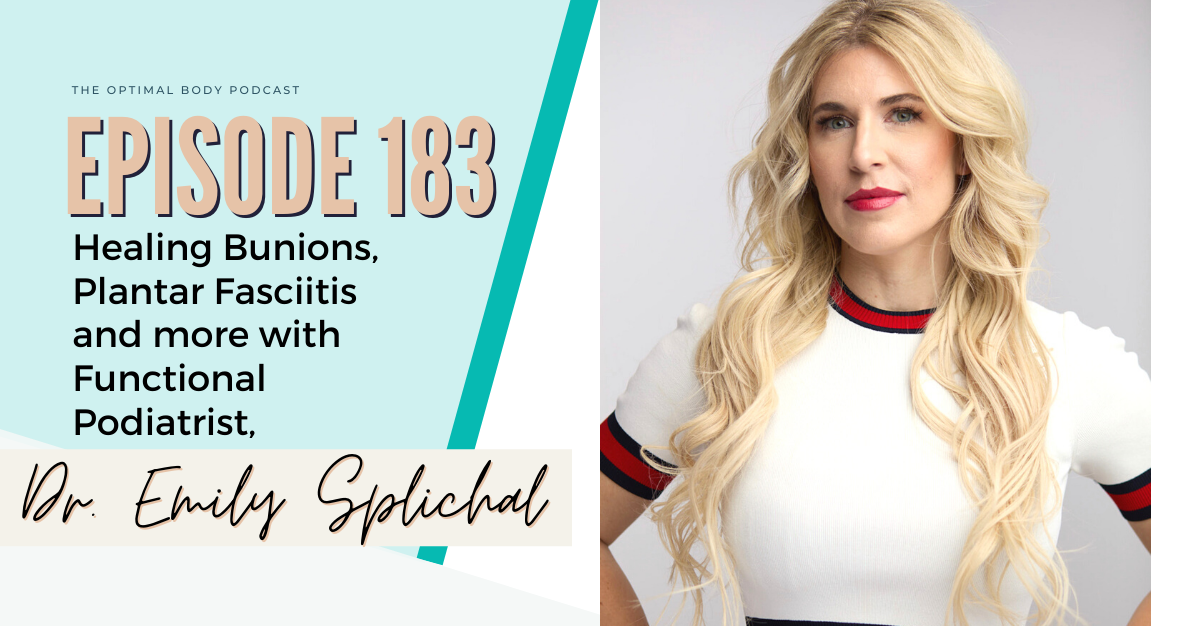
183 | Healing Bunions, Plantar Fasciitis and more with Functional Podiatrist, Dr. Emily
Dr. Emily walks the path of bunions, plantar fasciitis, and other foot conditions through the lens of functional podiatry, She begins by explaining the importance of educating individuals about orthotics and the general foot types. Then, she explains how foot structure is not necessarily related to symptoms and whether or not your foot condition is genetic. By discussing the importance of spending more time barefoot and exposing the feet to different structures to optimize neurological feedback, she dives into how the nervous system manifests in the feet, how training function is beneficial, and the role emotions play in feet health. Let’s get your feet functional!
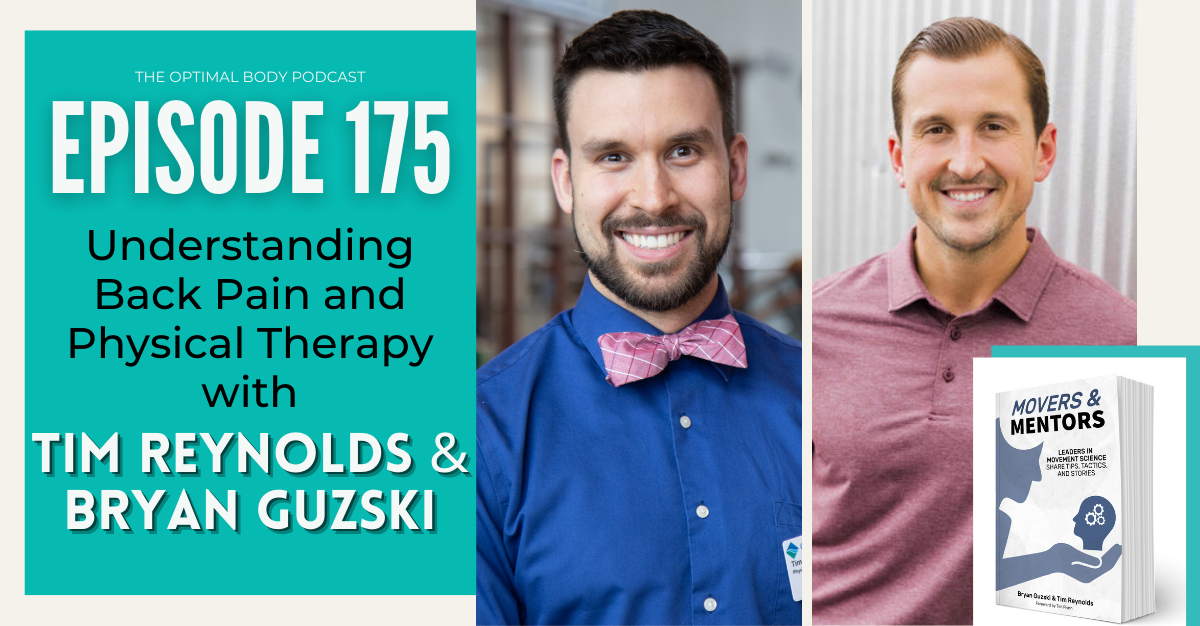
175 | Understanding Back Pain and Physical Therapy
Tim Reynolds and Bryan Guzksi, physical therapists, take you from PT school to clinical practice as they hone in on how their curiosity drove their career path. Tim & Bryan share how physical therapy can support back pain and the best ways in which you can address your back pain as you navigate the world of physical therapists to find your optimal one. They discuss the importance of shifting language around the medical diagnosis and how language plays a role in instilling fear in patients. As psychology plays an immense role in pain perception, they provide their best tips to navigating the fear around back pain, how to set yourself up for success at your medical appointments.
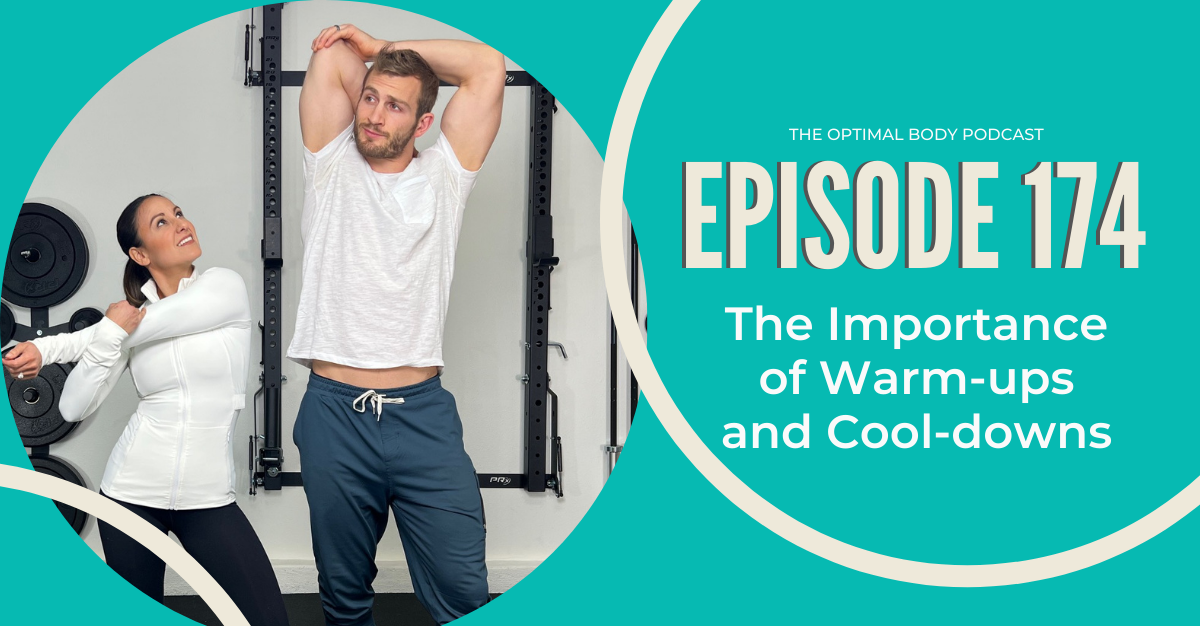
174 | The importance of warm-ups & cool-downs
At times, warm-ups and cool-downs feel unimportant or a waste of time, however, DocJen & Dr. Dom break the confusion in this episode. With a high emphasis on specificity, they explain the importance of strategically warming up the body to prepare for the upcoming movement and cool down to truly downregulate the system and facilitate recovery.

172 | Back Pain with Core Exercises?! What Does That Mean?
DocJen & Dr. Dom debunk common myths surrounding the relationship between core exercises and back pain. Clarifying the possible roots of back pain, they explain the how the biopsychosocial model in relation to expectations, mindsets, and beliefs surrounding interventions and pain perception. Furthermore, they dive into the anatomy of the core and what it encompasses, how movement can inhibit pain, the perks of strength training for overall back health, and how to begin and progress core exercises to truly optimize integrity and coordination throughout the body.
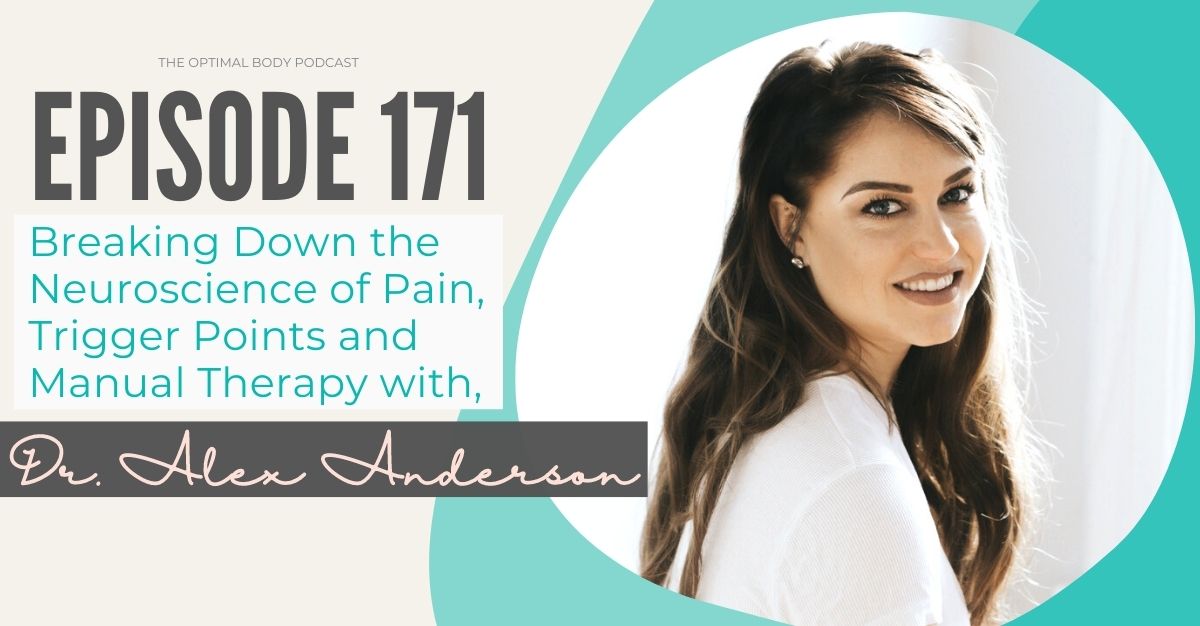
171 | Breaking Down the Neuroscience of Pain, Trigger Points and Manual Therapy with Dr. Alex Anderson
We have Dr. Alex Anderson on to break down the shifts in pain science and why pain is important. Using the biopsychosocial model, Dr. Alex addresses pain through a biomedical perspective, and how psychosocial factors can affect pain perception too. Then, she dives into chronic pain and how pain is interpreted in the brain through inputs of threat stimuli. Discussing chronic pain modulation, she dives into the physiology of Fibromyalgia and how plasticity in the brain makes pain plastic too! Finally, she provides insight into how manual therapy techniques modulate pain, specifically looking at joint mobilizations, trigger points, and dry needling.
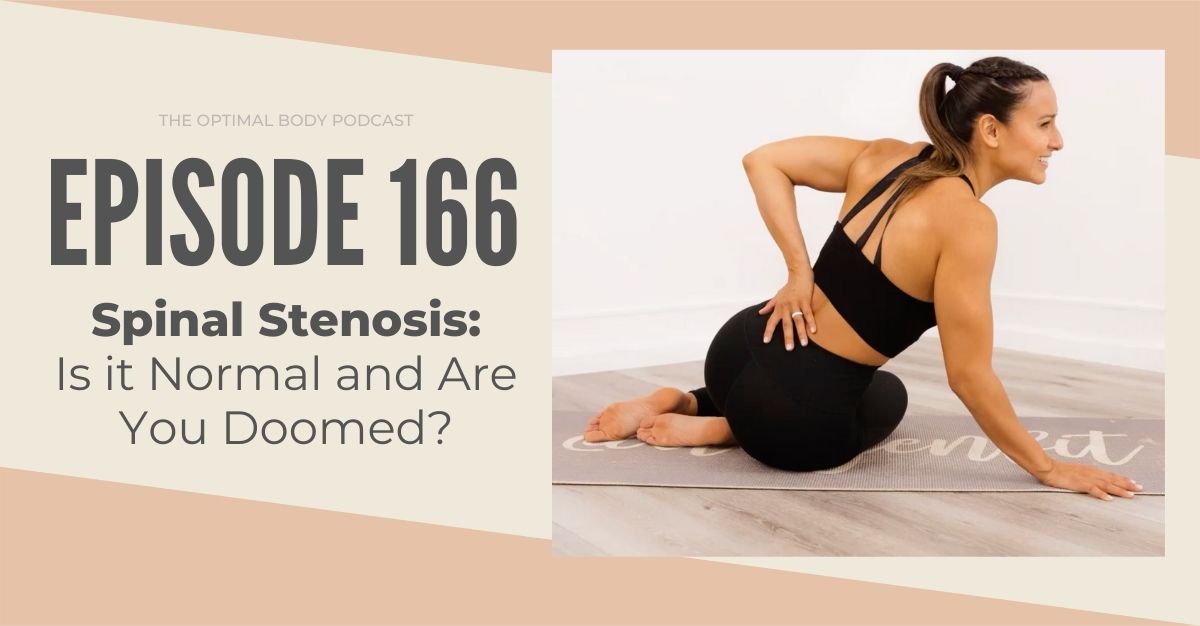
166 | Spinal Stenosis: Is it Normal and Are You Doomed?
Welcome to Episode 166 of The Optimal Body Podcast Spinal Stenosis: Is it Normal and Are You Doomed? Been diagnosed with Spinal Stenosis? Fear loading the spine or moving around it? DocJen & Dr. Dom
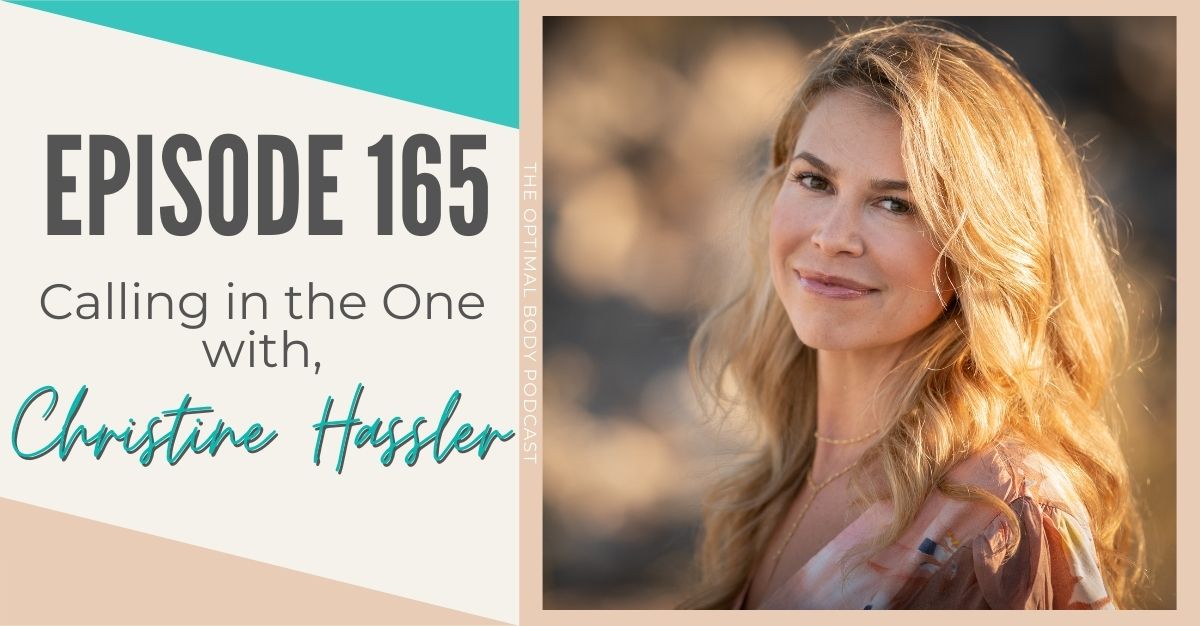
165 | Calling in the One with Christine Hassler
Firstly, Christine discusses how to separate your relationships from socio-cultural expectations and how to best navigate whether a relationship is real, true, and what you’re called for through the way you feel. Furthermore, she shares her best tips in unpacking yourself and that manifests in what it feels like to be loved. Then, she gets into the nitty-gritty about hardships and arguments in relationships, how she defines healthy fighting, and her best tips to getting through downtimes in relationships. Without repressing or recycling emotions, Christine promotes the idea of “feeling your feelings,” explaining the vulnerability and your inner-critic voice, FInally, she explains 4 stages to establishing the most optimal relationship for you!
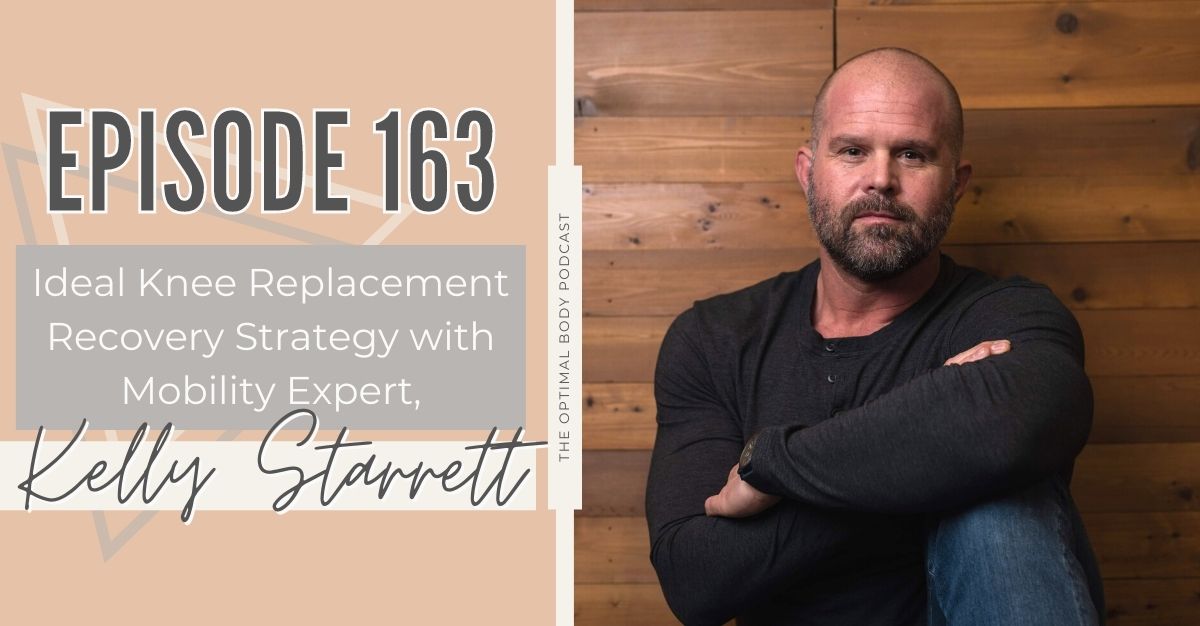
163 | Ideal Knee Replacement Recovery Strategy with Mobility Expert, Kelly Starrett
We have Dr. Kelly Starrett back on the podcast to provide you an insightful rundown on his journey with his knee replacement journey, and how you can optimally navigate online education to optimize your health. With an overemphasis on the ways in which function drives purpose, Dr. Kelly speaks into the importance of education, honing in on finding independence within your own health. Then, Dr. Kelly walks the path of his knee journey, having pushed off knee replacement surgery for 7 years, and why he decided to eventually get surgery after years of training for function. Honing in on educating for function after surgery, Dr. Kelly debunks myths around icing and rest and provides the truth surrounding optimal rehabilitation.

162 | High Arches? Learn All About It!
DocJen & Dr. Dom provide insight into when you should address your high arches. They explain the importance of focusing on function, rather than structure. They describe the different types of high arches and their prevalence. Dr. Dom shares his journey with flat feet and how he is navigating function in his feet again, discussing the interaction between foot and ankle mobility. They provide their best tips and exercises for high arches, honing in on the conventional show may be doing more harm than good.

157 | Baby Development and Play with Pediatric Therapist, Kailee Noland
Kailee, a pediatric physical therapist, walks you through her top tips in navigating self-worth as a parent and how it relates to baby development, as well as her approach to finding a balance between allowing natural exploration, nurture for your baby, safety-watch, and interference or control over the stimuli they are exposed to. Furthermore, Kailee shares the importance of crawling for physical and neurological development, and how different stages of baby development relate to spinal and joint maturation and innate reflexes. With a particular focus on tummy time and floor play, Kailee’s provides insight into baby containers. Finally, she explains how parents can create a more active environment through the idea of imitation.







